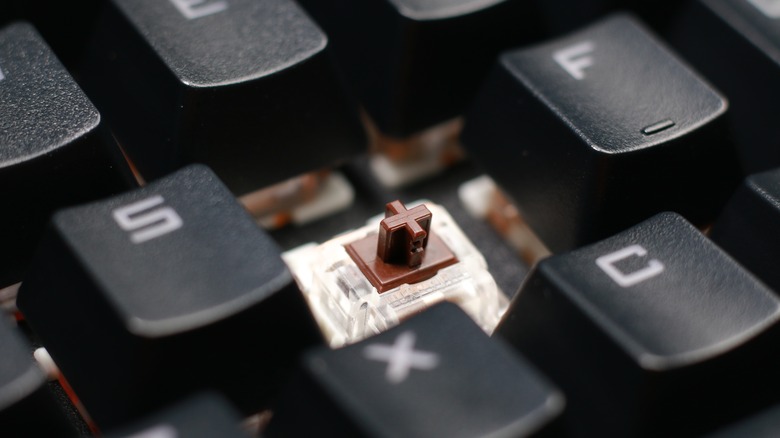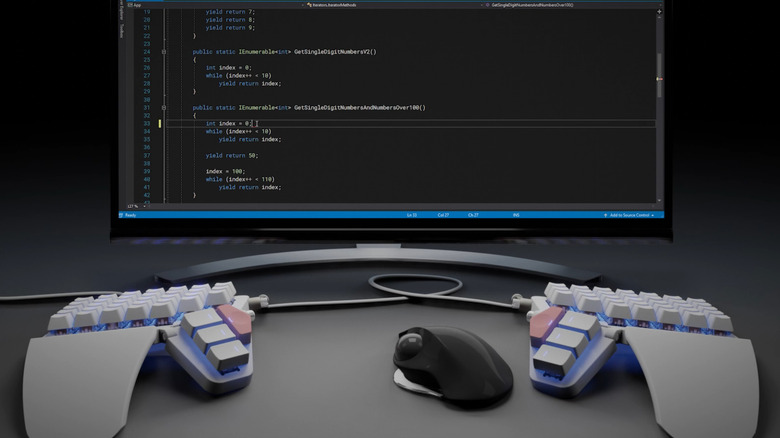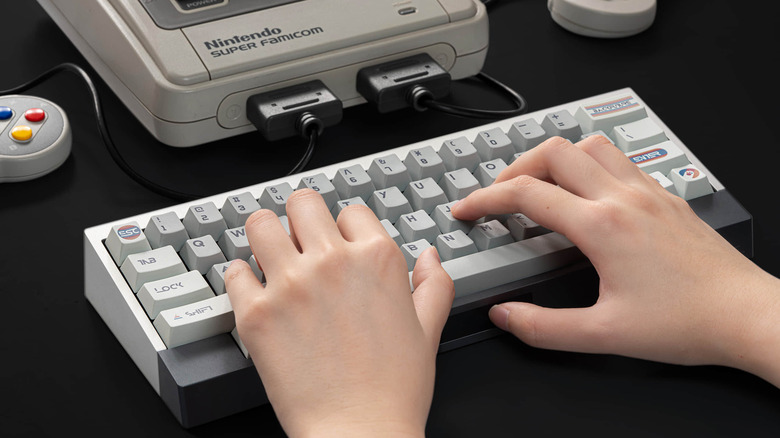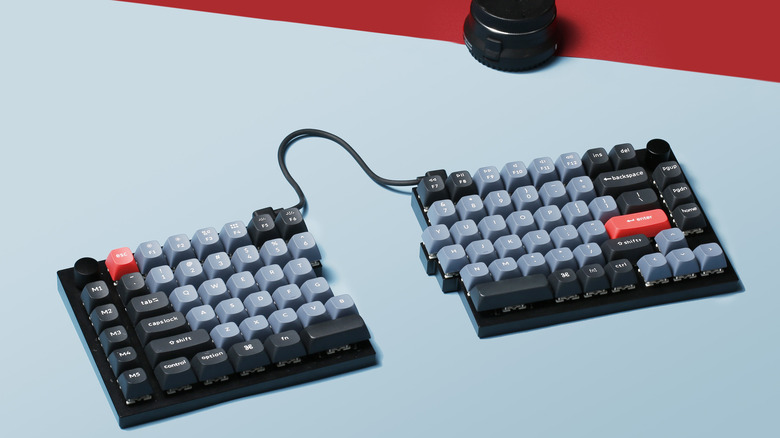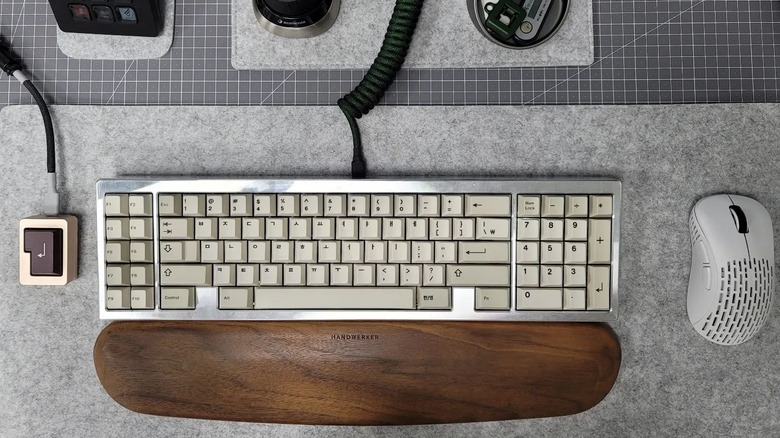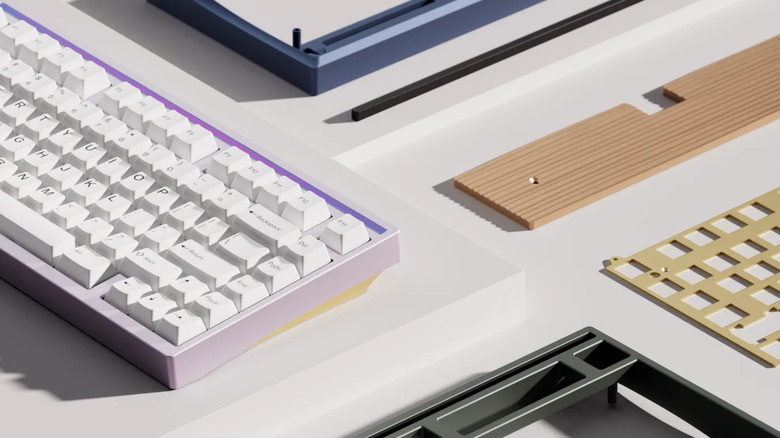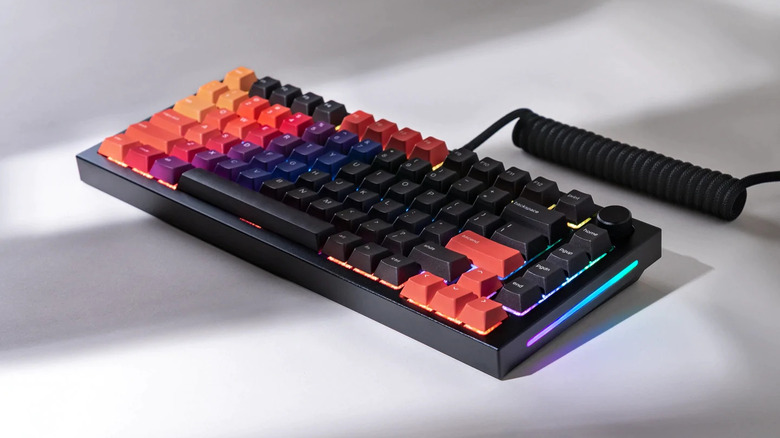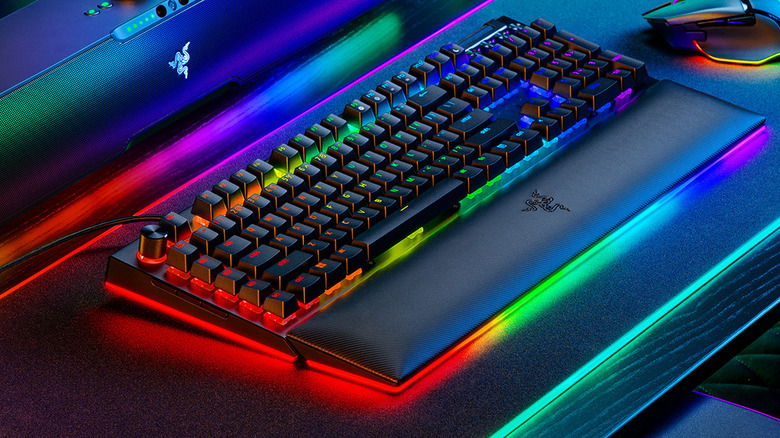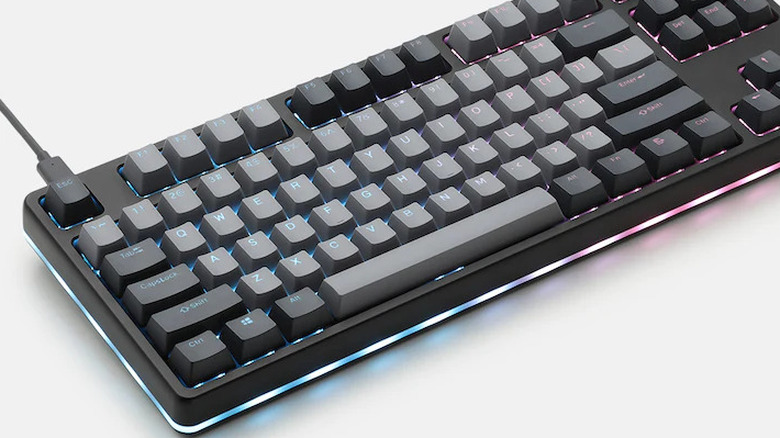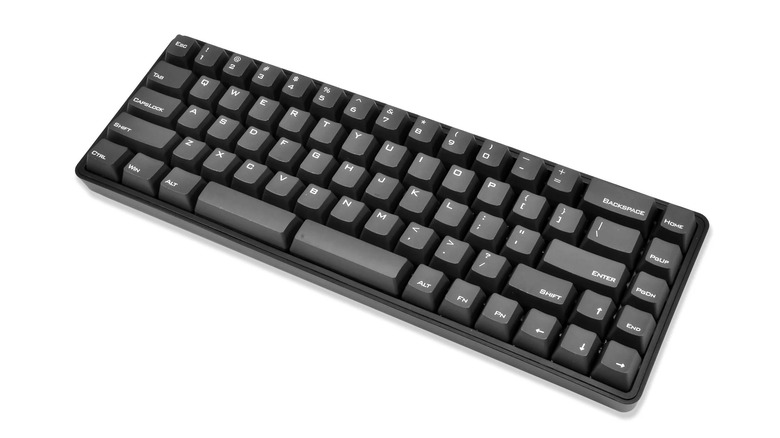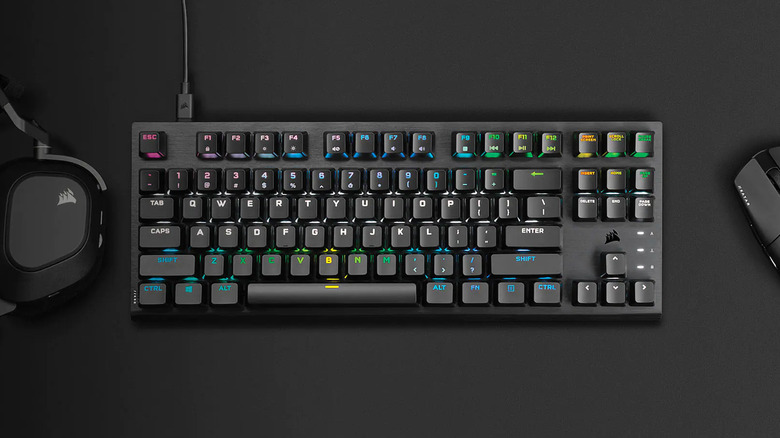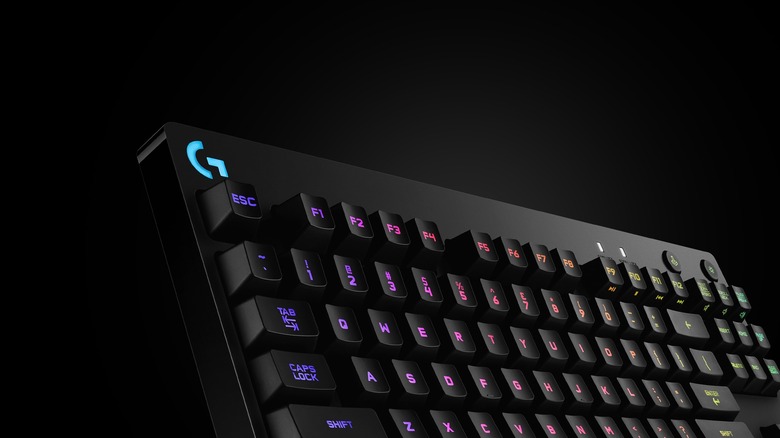6 Best Mechanical Keyboard Brands (And 6 You Should Avoid At All Costs)
The number of mechanical keyboards and brands making them has expanded over the last few years, driven by boutique custom makers, online forums with small, localized group buys, and new technology from a few that dared to break the mold. No longer the province of gamers who know that every millisecond of speed can make the difference between winning or not, mechanical keyboards are bought by office workers who want the best typing experience during the workday.
Due to the pandemic, the rise of work-from-home arrangements also spurred the expansion of keyboard hobbyists, who spend hundreds of dollars tailoring every aspect of their mechanical keyboards for sound, feel, and looks. After all, if you're using something for eight hours a day, it should be something you enjoy. Not long ago, you had to spend more to get a mechanical keyboard than the membrane one bundled with most prebuilt computers. Now the gap has narrowed with mechanical keyboards that are both performative and budget-friendly. The premium end of the market has also expanded, with more options for switches and other customizations. We've had our eye on the market makers and the old guard who are being left behind.
One to watch - Wooting
Wooting is one of the most exciting mechanical keyboard companies on the market. That's no hyperbole, as its keyboards have one feature that no other keyboard can do — full analog control on every single key. Imagine having a controller joystick axis on every switch, enabling analog controls of games or anything else you can think to map in the keyboard's software utility. The first keyboard, Wooting One, was a Kickstarter in 2016, with a TKL form factor using Flaretech light-actuated switches with complete analog control over the full travel of the switch. That was followed up in 2018 with the 104-key Wooting Two, again using the same laser-actuated switches.
The small team thought they could do better and created their own custom switches, the Lekker. This switch uses magnets and the Hall Effect to detect the analog input. These switches were designed for keyboard enthusiasts to customize to their liking. Wooting used housings, springs, and stems that are Cherry MX-compatible. The result is accurately sensed switches that can enable analog movement in games, customizable actuation points at any point in the switch's travel, or multiple key actions at different points of the keystroke. The latest keyboard, the $174.99 Wooting 60HE, is one of the best gaming keyboards you can buy today, if not the best if you go by the many glowing YouTube reviews from creators like BadSeed Tech and Optimum Tech. The PCB and top plate are compatible with many 60% custom keyboard shells, so they can drop straight in.
One to watch - ZSA
ZSA makes some of the most solid, customizable, sustainably-made mechanical keyboards we've used, whether the diminutive $245 40% ortholinear Planck EZ or the $365 Moonlander Mark I with its split construction and tweakable ergonomics. Every keyboard they design can be configured to your liking in software, which then downloads to the keyboard. The company also has a live training tool for learning the newly created layout, with a feedback loop driven by the user. These are keyboards for power users who demand the best construction, customizability, and ergonomics.
ZSA builds its keyboards to last, with a focus on repairability, which should be commended in our ever-disposable society. The key switches sit in hot-swap sockets, so if one fails, it's simple to swap in a new one. They come with a two-year warranty, which is almost unheard of in the peripheral market. All cables are detachable, the keyboards are built to be easily opened, and the keyboards run on open-source firmware called QMK, with the code available on GitHub for customizing every aspect. The company is also structured to be sustainable, with employees with overtime, benefits, paid holidays, and an office-based working environment. If you care about the who, the where, and the why connected to the devices you purchase, ZSA should be on your list to check out.
One to watch - Angry Miao
Boutique mechanical keyboard maker Angry Miao makes some outlandish keyboards with cyberpunk sensibilities that won't please everyone. Still, arthouse anything is always aimed at niche users, and the wacky, custom keyboards market is more extensive than you might think. Yahoo! Finance reports that Angry Miao has completed several VC funding rounds, with the last one accumulating over $100 million for the company. New products are sold several times a year, with a hypebeast model where highly marketed, limited-release products are sold in preorder rounds.
The company takes a futuristic cyberspace mentality to its devices, like the $1,600 split ergo AM Hatsu, inspired by the opening credits of HBO's "Westworld." Built with a complex five-axis CNC process, the wireless, sculpted halves have embedded wireless charging, designed to be used with AM's Cybermat, which has 12 Qi charging coils to charge the keyboard, your phones, or your Logitech Powerplay compatible mouse. For something more regular but no less eye-catching, the Cybertruck-inspired Cyberboard brings a 75% form factor with a customizable LED lighting panel for a minimum of $670 if you get one before they sell out. The current keyboard offering is the $402 AM Compact Touch, which has an HHKB layout, customizable leaf springs for a bouncy typing feel, and a thumb-centered touchpad that functions as arrow keys or media controls. They recently branched into earbuds with the "Horizon: Zero Dawn" inspired $328 Cyberblade, which features a dock that enables a low 36ms wireless latency for gaming use.
One to watch - Keychron
Hong Kong-based Keychron has built a reputation for budget-friendly, well-designed keyboards with a size or layout for almost every taste. The company releases new designs regularly throughout the year, so if your preferred format doesn't already exist, chances are it won't be far away from the market. Its starter ranges start at $49, getting you a mechanical keyboard with a plastic case and a wired but detachable USB-C cable. The brand has 94 individual keyboards on offer, with many having fully CNC-machined aluminum cases and features like wireless connectivity or hot-swap switch sockets.
Many also have premium features like sound-dampening foam between the components inside the case, rubber gaskets for a softer typing feel, and rotary encoders that can be programmed to control media or creative tools. The company is also an OEM for other brands, with the upcoming OnePlus Keyboard 81 Pro developed from a partnership between the two companies. Keychron is also committed to supporting QMK and VIA on its keyboards, the two main open-source customization software packages used by keyboard hobbyists to remap their layouts.
One to watch - Geon Works
Usually, custom mechanical keyboards need patience, as they are often group buys, meaning you pay, then wait for months for manufacturing. Geon runs his keyboard business as a side hustle from his existing machining companies, so he has in-stock, high-quality keyboards that the community love. His company has a level of transparency not shown often in the business world, let alone the keyboard one. He publishes manufacturing costs for each design, and the profit margin, and goes to great lengths to fix any manufacturing issues. While some products are still run as group buys, most of his designs are now offered as in-stock buys, in varying quality levels with corresponding prices. The Frog TKL is one of the most popular, which costs up to $295 for the kit with a choice of color and weight, plus DHL shipping from South Korea.
If you want an unforgettable typing experience in raw aluminum finish, watch for the regular drops of his F1-8X TKL format custom boards or the W1-AT (pictured), which shifts the F-row to a double column on the left side of the alphas for a slimmer keyboard while retaining the number pad. He's also known for the unique gasket-like mount mechanism, which use Tadpoles, small rubber tadpole-shaped bumpons to add a little flex to the typing feel. The only downside? Shipping from Korea isn't cheap.
One to watch - Mode Designs
With more bangers than South Central LA, this boutique custom keyboard manufacturer has some of the most sought-after designs, offered at a quality and price that is hard to beat. Mode Design currently has three keyboard designs on the market, all of which can be customized to bespoke levels of taste. Based in Massachusetts, its high-end custom keyboards have generated significant buzz in the enthusiast section of the mechanical keyboard hobby. The first two models, the Eighty and SixtyFive, featured a premium typing sound and feel from minimalist designs.
The company has two current designs for sale, starting with the 65% Envoy, which starts from $189 for the base kit, has a creative block mounting system for either flex or a firmer feel, and literally hundreds of combinations of possible materials for the body, weight, accent, plate, and PCB. The other current model is the 75% Sonnet, which starts from $309 and has hundreds of possible configurations to make your keyboard unique. The website has an in-depth customization tool, which generates a custom code to return to that configuration later. These are kits without switches or keycaps, as the enthusiast market often prefers to source those separately.
One to avoid - Glorious
Glorious Gaming has gone through a rebrand since its early days as the meme-worth Glorious PC gaming race. The once-plucky upstart started out by delivering mechanical keyboards with fully-hot-swap sockets for half the price of the big-name brands, and they still sell those today in the GMMK 1, which comes in full-size, TKL, and 60% sizes for the same $109.95 price. The next move was to enter the ultralight mouse market, following the success of another up-and-coming startup, Finalmouse. The Glorious Model O, O-, Model D, and D- came in wired and wireless versions, bringing low-cost, low-weight, and high-quality gaming mice to the masses.
The first batches of Model O mice had a packaging issue that damaged the cord on some units. Glorious decided to ship every affected user a new custom-sleeved cable to fix the problem and sold cables in various colors. Then came the Holy Panda incident. Holy Pandas are a frankenswitch created from Halo True stems and Invyr Panda housings. Another vendor, Drop, owns the Halo True stem tooling. Glorious found the tooling for the housings and bought them. With two vendors holding half of the whole, the question became who owns the Holy Panda name. Glorious tried to trademark the name, despite only having the rights to part of the product. The community erupted, resulting in Glorious changing its switch name and withdrawing the trademark application. Glorious now sells a high-end keyboard, the $349.99 GMMK Pro and the $129.99 GMMK Numpad, a far cry from its roots as an affordable alternative.
One to avoid - Razer
Razer could be credited as one of the driving factors in the renewed popularity of mechanical keyboards over the last decade. Its wide range of keyboards uses its own design of mechanical switches and is marketed to gamers and creative professionals. They're popular, too, with the Razer triple-snake logo showing up in competitive esports, live streaming, and on the shelves of any big box technology store. The company has done a lot for the community, but its keyboards are tuned for gaming use, not for extended daily use for working.
If you want a keyboard for gaming use, by all means, look at Razer. That said, not everyone wants to have multiple keyboards on their desk, and the typing experience on Razer mechanical keyboards isn't up to the ever-increasing standards of the keyboard community. The stabilizers on longer keys like the spacebar or modifiers use Razer's design instead of the tried-and-tested versions from Cherry and its clones. This design rattles more, leaving an undesired feel and sound. The Razer switches feel scratchier or less smooth on movement than other manufacturers. The company also used a non-standard bottom row until 2020, when it switched things up to use the standard layout for 104/105-key keyboards with a 6.25u spacebar. The other thing to note is that most Razer keyboards are in plastic cases, even those with top halves made of metal. The market is full of low-cost full-aluminum mechanical keyboards, so until Razer follows suit or drops its MSRPs, they should be avoided.
One to avoid - Drop
Drop has a long history in the enthusiast space. It was launched as Massdrop in 2012 as a centralized way to participate in group buys with other hobbyists in the mechanical keyboard space, including audiophiles and everyday carry. Back then, it was very much community-led, with polls, discussions, and a thriving forum system. The site would then go and negotiate deep discounts with manufacturers for the popular items, with the power of the high volume orders it was organizing. It was a revolutionary idea at the time, turning the community into commerce.
In 2019, the site rebranded to Drop, dropping many enthusiast communities and item categories it had been known for. Now the site only features mechanical keyboards and audiophile items, with a heavy preference for its own self-branded devices or those co-branded Drop x with another company, like the ever-popular collaborations with Sennheiser. The mechanical keyboard section used to be lively with multiple other brands, and now it is overwhelmingly Drop-branded keyboards, like the $349 SENSE75. The company is still running group buys as preorders for its products or a few selected partners.
The biggest reason to avoid isn't the items, which are good if sometimes overpriced compared to the market — it's the litany of subpar customer service experiences documented on sites like Trustpilot and Drop's own forums.
UPDATE: It would appear that the company has claimed a different Trustpilot page which has more reviews and more responses – take that how you will. Also note: the above link to Drop's forums shows one notorious instance of a less-than-perfect keyboard release. As of late, the number of negative issues appears to be fewer than several years ago, showing the manufacturer is working on regaining its reputation.
One to avoid - Vortex
The mechanical keyboard community hates when companies copy designer's keycap designs, and Vortex forgot about this. The company was carving its own section out of the market with low-cost, high-quality mechanical keyboards like the Cypher. This features Cherry MX switches, a condensed 65% layout with dedicated arrow keys, a split spacebar option, and a removable cable that uses USB-C when many other brands were still designing with micro USB. The Pok3r was also a firm favorite, with options for ANSI, and also some ISO variants so that European mechanical keyboard hobbyists could use their preferred layout.
The company then released a few cloned colorways of keycaps, including the popular GMK Carbon. This came at a time when the community was already protesting other brands cloning colorways of sets from prominent designers like Olivia. To their credit, the company stopped selling the clones and appears to have turned a corner, partnering properly with another popular keyboard designer, MiTo.
One to avoid - Corsair
Corsair is one of the largest gaming peripheral companies, with a mechanical keyboard range that leans all the way into the gamer aesthetic: metal faceplates, open designs to show the mechanical switches and let the RGB glow wash over everything, macro keys, deep software customizability, and choices of mostly Cherry MX switches, with a few models having Corsair's own OPX optical-mechanical switches. They're mostly built well, although the bottom housing of every keyboard is injection-molded plastic so there are no fully-aluminum options. The price might have you think otherwise, with the most expensive wired mechanical keyboard, the K100 RGB, costing an eye-watering $249.99.
There is no reason to spend that much on a gaming keyboard that doesn't feature hot-swap sockets, a CNC aluminum case, or a normally-spaced bottom row so that the user can put their own key caps on. The spacebar is 6.5u, which makes most keycap sets unusable, as the typical spacebar lengths are 6.25u and 7u. The open construction means you better like the sound of your mechanical key switches, and everyone in the house will also have to adjust as the sound carries spectacularly. There are simply better options for typing feel and sound for less money, unless you really, really need that RGB glow and lighting sync with other iCUE devices.
One to avoid - Logitech
Logitech is one of the oldest peripheral companies, founded in 1981 in Lausanne, Switzerland, before relocating to Silicon Valley in its nascent years. It was the first company to bring wireless infrared and laser sensor mice to the market and has a wide range of almost any PC peripheral you could want. The company split its productivity and gaming lines into different branding, with productivity using the Logitech brand and the gaming side as Logitech G.
The thing is, most of its keyboards aren't using mechanical switches. Only five of the productivity range use mechanical switches, only one of the five has Cherry MX switches as an option, and none have hot-swap sockets as an option. In a market with many budget-friendly brands, Logitech sticks to higher prices, possibly banking on its name recognition. The Logitech G gaming side has 15 keyboards with mechanical key switches, but only one has hot-swap sockets, the $149.99 Pro X, which came out in 2019. None of its keyboards are CNC aluminum, which is where the mechanical keyboard market is heading. It's not that it makes bad keyboards and its budget offerings are suitable for the price, just that the company seems to put more creative effort into the non-mechanical keyboards.
